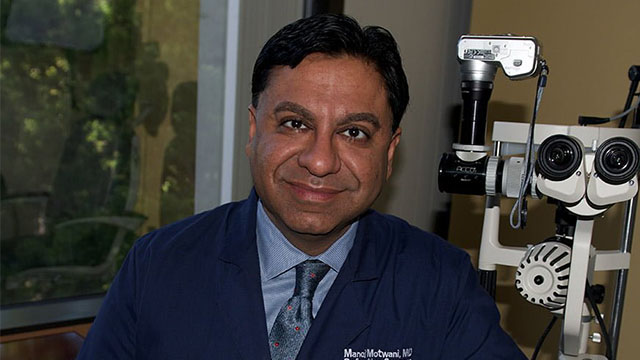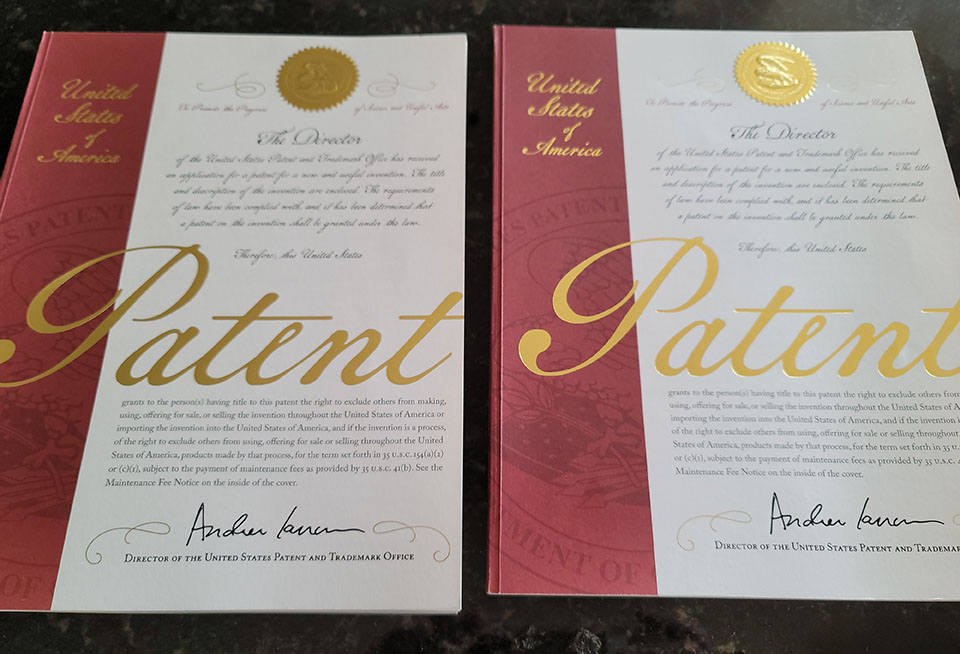Cornea Revolution is based on Dr. Motwani’s over two decades of laser vision correction experience and his extensive research on creating perfect, uniform corneas with the potential for “super-vision,” as well as repairing corneas damaged by past surgery, trauma, or disease. This has led to multiple peer-reviewed original research publications and multiple patents in laser vision correction systems, with research work ongoing.
Dr. Motwani strongly believes the restoration of vision in those who have lost it for corneal reasons is his legacy, as his work to make better than normal human vision to improve people’s lives. He sees his work not just as his career, but his calling. His personal journey started not long after he arrived in the United States from India at the age of 6, as by 8 he was already in glasses and progressed over the years to -10.00 diopters of myopia. Being also born with thinner than average corneas, this presented a technical challenge that led him down the path during his career towards creating procedures to safely fix his own eyes, and used that knowledge to make complex procedures safer and more accessible for patients. His New York upbringing and education gave him the determination and work ethic to go beyond the norm, and the drive to consistently be the best that he can be.
Read MoreHe saw the promise of technologies such as topographic guided ablation and corneal cross linking which were finally approved in 2016, and this propelled him deeper into his research work to make superior ocular focusing systems. This has resulted in over 15 major research papers since 2016, 2 U.S. Patents already granted, and others pending.
To know Dr. Motwani is know that he is not only very gifted intellectually, but supremely gifted technically as a surgeon. He is known for performing procedures routinely twice as quickly as most other surgeons, and for his deft quick hands. His mind is always thinking about the possibilities of how to correct a problem, and for rare problems where the right procedure doesn’t exist, he simply creates it.
Dr. Motwani is nothing if not direct. He is confident but maintains a strong sense of humility with his absolute rule that the patient is the number one consideration and the one that actually is in charge of the room. Everything must be done to provide the right care and the best procedure for the patient, to minimize emotional, mental and physical stress for the patient. The surgeon and the staff are merely the tools to achieve this objective.
Over the past two decades his center has always been highly regarded as extremely professional with staff that are not only knowledgeable, but courteous, friendly, and extremely accommodating. Although the laser center is upscale, spacious, and beautifully decorated, one never feels that the office is pretentious or unavailable. That is at the heart of Dr. Motwani’s brand, knowledge and ability that make his center one of the best in the United States, yet still warm and accommodating so you feel like you are part of the extended family.

Since I was in third grade I have worn glasses. My prescription quickly worsened, and my glasses quickly got thicker. After being called “four eyes” and being bullied for years, I finally got contacts in 10th grade My prescription quickly worsened to over a -9.00 in my right eye, and over a -10.00 in my left eye, with astigmatism in both eyes.
This played a big part in my decision to pursue a career in ophthalmology, which required a lot of work and preparation. I was driven by my need to do something about my own eyes. When I finally finished my ophthalmology residency, the excimer laser for refractive surgery has been approved for correction of eyes just two years before. It was a new field, and finding proper training in the United States was extremely difficult. It was a brand new field, one that was being invented and developed from the ground up, and it was a very different language than just normal ophthalmology. I then went and got one of the best refractive surgeons in the world at that time, Dr. Enrique Suarez of Caracas, Venezuela to allow me to come and learn with him. He was doing more LASIK in a day than many doctors were performing in a month in the United States. I was absolutely determined to become so good at laser eye surgery that I could perfect the techniques to fix my own complicated eyes.
But, I didn’t have enough corneal tissue to correct my eyes with LASIK, not even the thin-flap LASIK that became available a few years later. PRK could be done, but my high correction would result in very high amounts of haze and regression. On top of that, there were serious problems with performing very high prescriptions and getting bad night glare, halos, and loss of contrast sensitivity.
I obtained the equipment and learned the technique of Epi-Lasik, and performed it on many people in my own position. I also decided with the advances in PRK haze control, pain control, and accuracy, I would have my laser performed as PRK in two parts to avoid the haze and regression issues. The results were amazing.
To me, this surgery has been a no-brainer, and the monovision has been even a bigger no-brainer. I have no problems driving at night, I don’t use readers for anything, and the Restasis has taken away the dry eyes I had. My only regret is that it took me so many years to have it done.

Dr. Motwani is proud to announce his recent recognition from the United States Patent and Trademark Office for his technologies and practices. Motwani and his office received two patents for his Systems and Methods for Corneal Laser Ablation.